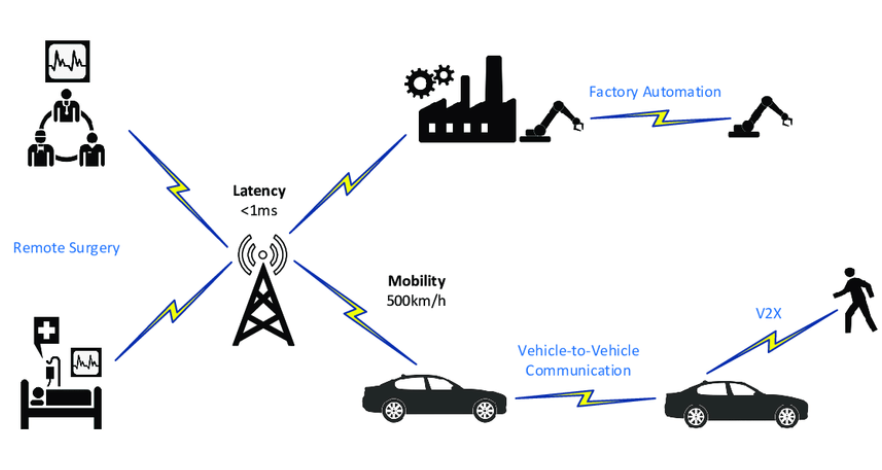5G technology is poised to revolutionize mobile connectivity, offering unprecedented speed, reliability, and capacity. As the next generation of wireless technology, 5G promises to transform various industries to enhance the user experiences, and to enable the new applications that were previously unimaginable. In this blog, we’ll explore what 5G technology means for the future of mobile connectivity and network and its potential impact on our lives
1. Unprecedented Speed and Capacity :
5G offers significantly faster data speeds compared to its predecessors. With peak download speeds reaching up to 10 Gbps, 5G networks can handle a massive amount of data traffic, ensuring smooth and uninterrupted connectivity even in densely populated areas.

- Key Benefits:
- Faster downloads and uploads
- Reduced latency
- Enhanced streaming and gaming experiences
2. Improved Reliability and Lower Latency:
Modern gaming has come a long way since the release of the original Nintendo or Atari. Individual gameplay on console systems has now evolved to multiplayer systems that bring gamers together virtually from all over the world. With latency as low as 1 millisecond, 5G enables real-time communication and instantaneous responses, which is crucial for applications like autonomous vehicles, remote surgery, and augmented reality. Low latency means less lag and smoother gameplay. Generally, when you test your ping, an acceptable number is anywhere around 40 to 60 milliseconds (ms) or lower, while a speed of over 100 ms will usually mean a noticeable lag in gaming.

- Key Benefits:
- Real-time communication
- Enhanced user experience
- Support for critical applications
3. Enhanced Internet of Things (IoT) Integration:
5G technology is expected to be a game-changer for the Internet of Things (IoT). Its ability to connect a vast number of devices simultaneously with reliable and high-speed communication will enable smarter homes, cities, and industries. From smart appliances to industrial automation, 5G will drive the growth of IoT.

- Key Benefits:
- Increased device connectivity
- Enhanced smart city infrastructure
- Improved industrial automation
4. Transformation of Industries:
Transformation of Industries is a various set to benefit from the implementation of 5G technology. For example, in healthcare, 5G can support remote, allowing doctors to treat patients from a distance. In manufacturing, it can enhance automation and predictive maintenance, leading to increased efficiency and reduced downtime.

- Key Benefits:
- Remote healthcare services
- Advanced manufacturing processes
- Improved efficiency and productivity
5. Enhanced Mobile Experiences:
For everyday users, 5G will bring about a significant improvement in mobile experiences. High-definition video streaming, virtual reality (VR), and augmented reality (AR) applications will become more accessible and seamless. Gamers will enjoy lag-free online gaming, and video calls will be clearer and more stable.

- Key Benefits:
- Improved video streaming
- Enhanced VR and AR experiences
- Lag-free online gaming
6. Impact on Telecommunications:
Telecommunications companies will need to invest heavily in infrastructure to support 5G networks. This includes deploying more small cells, upgrading existing towers, and increasing fiber optic connectivity. While the initial costs are high, the long-term benefits of improved network performance and new revenue streams will outweigh the expenses.

- Key Benefits:
- Improved network performance
- New business opportunities
- Enhanced customer satisfaction
7. Security and Privacy Considerations:
With the proliferation of connected devices and increased data transmission, security and privacy concerns become more critical. 5G networks will need robust security protocols to protect against cyber threats and ensure user data privacy. This includes encryption, authentication, and network slicing to isolate different types of traffic.

- Key Benefits:
- Enhanced security measures
- Improved data privacy
- Protection against cyber threats
Conclusion:
5G technology is set to redefine the future of mobile connectivity, bringing about faster speeds, lower latency, and greater capacity. Its impact will be felt across various industries, enhancing mobile experiences, and enabling new applications and services. As 5G continues to roll out globally, we can look forward to a more connected and innovative world.